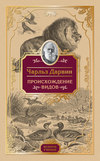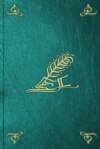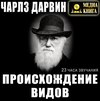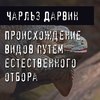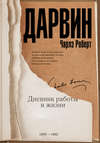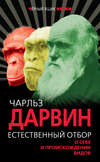Читать книгу: «More Letters of Charles Darwin — Volume 1», страница 24
This is a very ill-expressed and ill-written letter. Do not answer it, unless the spirit urges you. Life is too short for so long a discussion. We shall, I greatly fear, never agree.
LETTER 214. A.R. WALLACE TO CHARLES DARWIN. Hurstpierpoint, {April?} 8th, 1868.
I am sorry you should have given yourself the trouble to answer my ideas on sterility. If you are not convinced, I have little doubt but that I am wrong; and, in fact, I was only half convinced by my own arguments, and I now think there is about an even chance that Natural Selection may or may not be able to accumulate sterility. If my first proposition is modified to the existence of a species and a variety in the same area, it will do just as well for my argument. Such certainly do exist. They are fertile together, and yet each maintains itself tolerably distinct. How can this be, if there is no disinclination to crossing?
My belief certainly is that number of offspring is not so important an element in keeping up population of a species as supply of food and other favourable conditions; because the numbers of a species constantly vary greatly in different parts of its own area, whereas the average number of offspring is not a very variable element.
However, I will say no more, but leave the problem as insoluble, only fearing that it will become a formidable weapon in the hands of the enemies of Natural Selection.
LETTER 215. TO J.D. HOOKER.
(215/1. The following extract from a letter to Sir Joseph Hooker (dated April 3rd, 1868) refers to his Presidential Address for the approaching meeting of the British Association at Norwich.
Some account of Sir Joseph's success is given in the "Life and Letters," III., page 100, also in Huxley's "Life," Volume I., page 297, where Huxley writes to Darwin: —
"We had a capital meeting at Norwich, and dear old Hooker came out in great force, as he always does in emergencies. The only fault was the terrible 'Darwinismus' which spread over the section and crept out when you least expected it, even in Fergusson's lecture on 'Buddhist Temples.' You will have the rare happiness to see your ideas triumphant during your lifetime.
"P.S. — I am going into opposition; I can't stand it.")
Down, April 3rd {1868}.
I have been thinking over your Presidential Address; I declare I made myself quite uncomfortable by fancying I had to do it, and feeling myself utterly dumbfounded.
But I do not believe that you will find it so difficult. When you come to Down I shall be very curious to hear what your ideas are on the subject.
Could you make anything out of a history of the great steps in the progress of Botany, as representing the whole of Natural History? Heaven protect you! I suppose there are men to whom such a job would not be so awful as it appears to me...If you had time, you ought to read an article by W. Bagehot in the April number of the "Fortnightly" (215/2. "Physic and Politics," "Fortnightly Review," Volume III., page 452, 1868.), applying Natural Selection to early or prehistoric politics, and, indeed, to late politics, — this you know is your view.
LETTER 216. A.R. WALLACE TO CHARLES DARWIN. 9, St. Mark's Crescent, N.W., August 16th {1868}.
I ought to have written before to thank you for the copies of your papers on Primula and on "Cross-unions of Dimorphic Plants, etc." The latter is particularly interesting and the conclusion most important; but I think it makes the difficulty of how these forms, with their varying degrees of sterility, originated, greater than ever. If "natural selection" could not accumulate varying degrees of sterility for the plant's benefit, then how did sterility ever come to be associated with one cross of a trimorphic plant rather than another? The difficulty seems to be increased by the consideration that the advantage of a cross with a distinct individual is gained just as well by illegitimate as by legitimate unions. By what means, then, did illegitimate unions ever become sterile? It would seem a far simpler way for each plant's pollen to have acquired a prepotency on another individual's stigma over that of the same individual, without the extraordinary complication of three differences of structure and eighteen different unions with varying degrees of sterility!
However, the fact remains an excellent answer to the statement that sterility of hybrids proves the absolute distinctness of the parents.
I have been reading with great pleasure Mr. Bentham's last admirable address (216/1. "Proc. Linn. Soc." 1867-8, page lvii.), in which he so well replies to the gross misstatements of the "Athenaeum;" and also says award in favour of pangenesis. I think we may now congratulate you on having made a valuable convert, whose opinions on the subject, coming so late and being evidently so well considered, will have much weight.
I am going to Norwich on Tuesday to hear Dr. Hooker, who I hope will boldly promulgate "Darwinism" in his address. (216/2. Sir Joseph Hooker's Presidential Address at the British Association Meeting.) Shall we have the pleasure of seeing you there?
I am engaged in negociations about my book.
Hoping you are well and getting on with your next volumes.
(216/3. We are permitted by Mr. Wallace to append the following note as to his more recent views on the question of Natural Selection and sterility: —
"When writing my "Darwinism," and coming again to the consideration of this problem of the effect of Natural Selection in accumulating variations in the amount of sterility between varieties or incipient species twenty years later, I became more convinced, than I was when discussing with Darwin, of the substantial accuracy of my argument. Recently a correspondent who is both a naturalist and a mathematician has pointed out to me a slight error in my calculation at page 183 (which does not, however, materially affect the result), disproving the 'physiological selection' of the late Dr. Romanes, but he can see no fallacy in my argument as to the power of Natural Selection to increase sterility between incipient species, nor, so far as I am aware, has any one shown such fallacy to exist.
"On the other points on which I differed from Mr. Darwin in the foregoing discussion — the effect of high fertility on population of a species, etc. — I still hold the views I then expressed, but it would be out of place to attempt to justify them here."
A.R.W. (1899).)
LETTER 217. TO C. LYELL. Down, October 4th {1867}.
With respect to the points in your note, I may sometimes have expressed myself with ambiguity. At the end of Chapter XXIII., where I say that marked races are not often (you omit "often") produced by changed conditions (217/1. "Hence, although it must be admitted that new conditions of life do sometimes definitely affect organic beings, it may be doubted whether well-marked races have often been produced by the direct action of changed conditions without the aid of selection either by man or nature." ("Animals and Plants," Volume II., page 292, 1868.)), I intended to refer to the direct action of such conditions in causing variation, and not as leading to the preservation or destruction of certain forms. There is as wide a difference in these two respects as between voluntary selection by man and the causes which induce variability. I have somewhere in my book referred to the close connection between Natural Selection and the action of external conditions in the sense which you specify in your note. And in this sense all Natural Selection may be said to depend on changed conditions. In the "Origin" I think I have underrated (and from the cause which you mention) the effects of the direct action of external conditions in producing varieties; but I hope in Chapter XXIII. I have struck as fair a balance as our knowledge permits.
It is wonderful to me that you have patience to read my slips, and I cannot but regret, as they are so imperfect; they must, I think, give you a wrong impression, and had I sternly refused, you would perhaps have thought better of my book. Every single slip is greatly altered, and I hope improved.
With respect to the human ovule, I cannot find dimensions given, though I have often seen the statement. My impression is that it would be just or barely visible if placed on a clear piece of glass. Huxley could answer your question at once.
I have not been well of late, and have made slow progress, but I think my book will be finished by the middle of November.
LETTER 218. A.R. WALLACE TO CHARLES DARWIN. {End of February, 1868}
I am in the second volume of your book, and I have been astonished at the immense number of interesting facts you have brought together. I read the chapter on pangenesis first, for I could not wait. I can hardly tell you how much I admire it. It is a positive comfort to me to have any feasible explanation of a difficulty that has always been haunting me, and I shall never be able to give it up till a better one supplies its place, — and that I think hardly possible. You have now fairly beaten Spencer on his own ground, for he really offered no solution of the difficulties of the problem. The incomprehensible minuteness and vast numbers of the physiological germs or atoms (which themselves must be compounded of numbers of Spencer's physiological units) is the only difficulty; but that is only on a par with the difficulties in all conceptions of matter, space, motion, force, etc.
As I understood Spencer, his physiological units were identical throughout each species, but slightly different in each different species; but no attempt was made to show how the identical form of the parent or ancestors came to be built up of such units.
LETTER 219. TO A.R. WALLACE. Down, February 27th {1868}.
You cannot well imagine how much I have been pleased by what you say about pangenesis. None of my friends will speak out, except to a certain extent Sir H. Holland, who found it very tough reading, but admits that some view "closely akin to it" will have to be admitted. Hooker, as far as I understand him, which I hardly do at present, seems to think that the hypothesis is little more than saying that organisms have such and such potentialities. What you say exactly and fully expresses my feelings — viz., that it is a relief to have some feasible explanation of the various facts, which can be given up as soon as any better hypothesis is found. It has certainly been an immense relief to my mind; for I have been stumbling over the subject for years, dimly seeing that some relation existed between the various classes of facts. I now hear from H. Spencer that his views quoted in my footnote refer to something quite distinct, as you seem to have perceived. (219/1. This letter is published in "Life and Letters," III., page 79.)
LETTER 220. A.R. WALLACE TO CHARLES DARWIN. Hurstpierpoint, March 1st, 1868.
...Sir C. Lyell spoke to me as if he has greatly admired pangenesis. I am very glad H. Spencer at once acknowledges that his view was something quite distinct from yours. Although, as you know, I am a great admirer of his, I feel how completely his view failed to go to the root of the matter, as yours does. His explained nothing, though he was evidently struggling hard to find an explanation. Yours, as far as I can see, explains everything in growth and reproduction — though, of course, the mystery of life and consciousness remains as great as ever.
Parts of the chapter on pangenesis I found hard reading, and have not quite mastered yet, and there are also throughout the discussions in Volume II. many bits of hard reading, on minute points which we, who have not worked experimentally at cultivation and crossing, as you have done, can hardly see the importance of, or their bearing on the general question.
If I am asked, I may perhaps write an article on the book for some periodical, and, if so, shall do what I can to make "Pangenesis" appreciated...
(220/1. In "Nature," May 25th, 1871, page 69, appeared a letter on pangenesis from Mr. A.C. Ranyard, dealing with the difficulty that the "sexual elements produced upon the scion" have not been shown to be affected by the stock. Mr. Darwin, in an annotated copy of this letter, disputes the accuracy of the statement, but adds: "THE BEST OBJECTION YET RAISED." He seems not to have used Mr. Ranyard's remarks in the 2nd edition of the "Variation of Animals and Plants," 1875.)
LETTER 221. TO J.D. HOOKER. Down, May 21st {1868}.
I know that you have been overworking yourself, and that makes you think that you are doing nothing in science. If this is the case (which I do not believe), your intellect has all run to letter-writing, for I never in all my life received a pleasanter one than your last. It greatly amused us all. How dreadfully severe you are on the Duke (221/1. The late Duke of Argyll, whose "Reign of Law" Sir J.D. Hooker had been reading.): I really think too severe, but then I am no fair judge, for a Duke, in my eyes, is no common mortal, and not to be judged by common rules! I pity you from the bottom of my soul about the address (221/2. Sir Joseph was President of the British Association at Norwich in 1868: see "Life and Letters," III., page 100. The reference to "Insular Floras" is to Sir Joseph's lecture at the Nottingham meeting of the British Association in 1866: see "Life and Letters," III., page 47.): it makes my flesh creep; but when I pitied you to Huxley, he would not join at all, and would only say that you did and delivered your Insular Flora lecture so admirably in every way that he would not bestow any pity on you. He felt certain that you would keep your head high up. Nevertheless, I wish to God it was all over for your sake. I think, from several long talks, that Huxley will give an excellent and original lecture on Geograph. Distrib. of birds. I have been working very hard — too hard of late — on Sexual Selection, which turns out a gigantic subject; and almost every day new subjects turn up requiring investigation and leading to endless letters and searches through books. I am bothered, also, with heaps of foolish letters on all sorts of subjects, but I am much interested in my subject, and sometimes see gleams of light. All my other letters have prevented me indulging myself in writing to you; but I suddenly found the locust grass (221/3. No doubt the plants raised from seeds taken from locust dung sent by Mr. Weale from South Africa. The case is mentioned in the fifth edition of the "Origin," published in 1869, page 439.) yesterday in flower, and had to despatch it at once. I suppose some of your assistants will be able to make the genus out without great trouble. I have done little in experiment of late, but I find that mignonette is absolutely sterile with pollen from the same plant. Any one who saw stamen after stamen bending upwards and shedding pollen over the stigmas of the same flower would declare that the structure was an admirable contrivance for self-fertilisation. How utterly mysterious it is that there should be some difference in ovules and contents of pollen-grains (for the tubes penetrate own stigma) causing fertilisation when these are taken from any two distinct plants, and invariably leading to impotence when taken from the same plant! By Jove, even Pan. (221/4. Pangenesis.) won't explain this. It is a comfort to me to think that you will be surely haunted on your death-bed for not honouring the great god Pan. I am quite delighted at what you say about my book, and about Bentham; when writing it, I was much interested in some parts, but latterly I thought quite as poorly of it as even the "Athenaeum." It ought to be read abroad for the sake of the booksellers, for five editions have come or are coming out abroad! I am ashamed to say that I have read only the organic part of Lyell, and I admire all that I have read as much as you. It is a comfort to know that possibly when one is seventy years old one's brain may be good for work. It drives me mad, and I know it does you too, that one has no time for reading anything beyond what must be read: my room is encumbered with unread books. I agree about Wallace's wonderful cleverness, but he is not cautious enough in my opinion. I find I must (and I always distrust myself when I differ from him) separate rather widely from him all about birds' nests and protection; he is riding that hobby to death. I never read anything so miserable as Andrew Murray's criticism on Wallace in the last number of his Journal. (221/5. See "Journal of Travel and Natural History," Volume I., No. 3, page 137, London, 1868, for Andrew Murray's "Reply to Mr. Wallace's Theory of Birds' Nests," which appeared in the same volume, page 73. The "Journal" came to an end after the publication of one volume for 1867-8.) I believe this Journal will die, and I shall not cry: what a contrast with the old "Natural History Review."
LETTER 222. TO J.D. HOOKER. Freshwater, Isle of Wight, July 28th {1868}.
I am glad to hear that you are going (222/1. In his Presidential Address at Norwich.) to touch on the statement that the belief in Natural Selection is passing away. I do not suppose that even the "Athenaeum" would pretend that the belief in the common descent of species is passing away, and this is the more important point. This now almost universal belief in the evolution (somehow) of species, I think may be fairly attributed in large part to the "Origin." It would be well for you to look at the short Introduction of Owen's "Anat. of Invertebrates," and see how fully he admits the descent of species.
Of the "Origin," four English editions, one or two American, two French, two German, one Dutch, one Italian, and several (as I was told) Russian editions. The translations of my book on "Variation under Domestication" are the results of the "Origin;" and of these two English, one American, one German, one French, one Italian, and one Russian have appeared, or will soon appear. Ernst Hackel wrote to me a week or two ago, that new discussions and reviews of the "Origin" are continually still coming out in Germany, where the interest on the subject certainly does not diminish. I have seen some of these discussions, and they are good ones. I apprehend that the interest on the subject has not died out in North America, from observing in Professor and Mrs. Agassiz's Book on Brazil how exceedingly anxious he is to destroy me. In regard to this country, every one can judge for himself, but you would not say interest was dying out if you were to look at the last number of the "Anthropological Review," in which I am incessantly sneered at. I think Lyell's "Principles" will produce a considerable effect. I hope I have given you the sort of information which you want. My head is rather unsteady, which makes my handwriting worse than usual.
If you argue about the non-acceptance of Natural Selection, it seems to me a very striking fact that the Newtonian theory of gravitation, which seems to every one now so certain and plain, was rejected by a man so extraordinarily able as Leibnitz. The truth will not penetrate a preoccupied mind.
Wallace (222/2. Wallace, "Westminster Review," July, 1867. The article begins: "There is no more convincing proof of the truth of a comprehensive theory, than its power of absorbing and finding a place for new facts, and its capability of interpreting phenomena, which had been previously looked upon as unaccountable anomalies..." Mr. Wallace illustrates his statement that "a false theory will never stand this test," by Edward Forbes' "polarity" speculations (see page 84 of the present volume) and Macleay's "Circular" and "Quinarian System" published in his "Horae Entomologicae," 1821, and developed by Swainson in the natural history volumes of "Lardner's Cabinet Cyclopaedia." Mr. Wallace says that a "considerable number of well-known naturalists either spoke approvingly of it, or advocated similar principles, and for a good many years it was decidedly in the ascendant...yet it quite died out in a few short years, its very existence is now a matter of history, and so rapid was its fall that...Swainson, perhaps, lived to be the last man who believed in it. Such is the course of a false theory. That of a true one is very different, as may be well seen by the progress of opinion on the subject of Natural Selection."
Here, (page 3) follows a passage on the overwhelming importance of Natural Selection, underlined with apparent approval in Mr. Darwin's copy of the review.), in the "Westminster Review," in an article on Protection has a good passage, contrasting the success of Natural Selection and its growth with the comprehension of new classes of facts (222/3. This rather obscure phrase may be rendered: "its power of growth by the absorption of new facts."), with false theories, such as the Quinarian Theory, and that of Polarity, by poor Forbes, both of which were promulgated with high advantages and the first temporarily accepted.
LETTER 223. TO G.H. LEWES.
(223/1. The following is printed from a draft letter inscribed by Mr. Darwin "Against organs having been formed by direct action of medium in distinct organisms. Chiefly luminous and electric organs and thorns." The draft is carelessly written, and all but illegible.)
August 7th, 1868.
If you mean that in distinct animals, parts or organs, such for instance as the luminous organs of insects or the electric organs of fishes, are wholly the result of the external and internal conditions to which the organs have been subjected, in so direct and inevitable a manner that they could be developed whether of use or not to their possessor, I cannot admit {your view}. I could almost as soon admit that the whole structure of, for instance, a woodpecker, had thus originated; and that there should be so close a relation between structure and external circumstances which cannot directly affect the structure seems to me to {be} inadmissible. Such organs as those above specified seem to me much too complex and generally too well co-ordinated with the whole organisation, for the admission that they result from conditions independently of Natural Selection. The impression which I have taken, studying nature, is strong, that in all cases, if we could collect all the forms which have ever lived, we should have a close gradation from some most simple beginning. If similar conditions sufficed, without the aid of Natural Selection, to give similar parts or organs, independently of blood relationship, I doubt much whether we should have that striking harmony between the affinities, embryological development, geographical distribution, and geological succession of all allied organisms. We should be much more puzzled than we now are how to class, in a natural method, many forms. It is puzzling enough to distinguish between resemblance due to descent and to adaptation; but (fortunately for naturalists), owing to the strong power of inheritance, and to excessively complex causes and laws of variability, when the same end or object has been gained, somewhat different parts have generally been modified, and modified in a different manner, so that the resemblances due to descent and adaptation can commonly be distinguished. I should just like to add, that we may understand each other, how I suppose the luminous organs of insects, for instance, to have been developed; but I depend on conjectures, for so few luminous insects exist that we have no means of judging, by the preservation to the present day of slightly modified forms, of the probable gradations through which the organs have passed. Moreover, we do not know of what use these organs are. We see that the tissues of many animals, {as} certain centipedes in England, are liable, under unknown conditions of food, temperature, etc., to become occasionally luminous; just like the {illegible}: such luminosity having been advantageous to certain insects, the tissues, I suppose, become specialised for this purpose in an intensified degree; in certain insects in one part, in other insects in other parts of the body. Hence I believe that if all extinct insect-forms could be collected, we should have gradations from the Elateridae, with their highly and constantly luminous thoraxes, and from the Lampyridae, with their highly luminous abdomens, to some ancient insects occasionally luminous like the centipede.
I do not know, but suppose that the microscopical structure of the luminous organs in the most different insects is nearly the same; and I should attribute to inheritance from a common progenitor, the similarity of the tissues, which under similar conditions, allowed them to vary in the same manner, and thus, through Natural Selection for the same general purpose, to arrive at the same result. Mutatis mutandis, I should apply the same doctrine to the electric organs of fishes; but here I have to make, in my own mind, the violent assumption that some ancient fish was slightly electrical without having any special organs for the purpose. It has been stated on evidence, not trustworthy, that certain reptiles are electrical. It is, moreover, possible that the so-called electric organs, whilst in a condition not highly developed, may have subserved some distinct function: at least, I think, Matteucci could detect no pure electricity in certain fishes provided with the proper organs. In one of your letters you alluded to nails, claws, hoofs, etc. From their perfect coadaptation with the whole rest of the organisation, I cannot admit that they would have been formed by the direct action of the conditions of life. H. Spencer's view that they were first developed from indurated skin, the result of pressure on the extremities, seems to me probable.
In regard to thorns and spines I suppose that stunted and {illegible} hardened processes were primarily left by the abortion of various appendages, but I must believe that their extreme sharpness and hardness is the result of fluctuating variability and "the survival of the fittest." The precise form, curvature and colour of the thorns I freely admit to be the result of the laws of growth of each particular plant, or of their conditions, internal and external. It would be an astounding fact if any varying plant suddenly produced, without the aid of reversion or selection, perfect thorns. That Natural Selection would tend to produce the most formidable thorns will be admitted by every one who has observed the distribution in South America and Africa (vide Livingstone) of thorn-bearing plants, for they always appear where the bushes grow isolated and are exposed to the attacks of mammals. Even in England it has been noticed that all spine-bearing and sting-bearing plants are palatable to quadrupeds, when the thorns are crushed. With respect to the Malayan climbing Palm, what I meant to express is that the admirable hooks were perhaps not first developed for climbing; but having been developed for protection were subsequently used, and perhaps further modified for climbing.
LETTER 224. TO J.D. HOOKER. Down, September 8th {1868}.
About the "Pall Mall." (224/1. "Pall Mall Gazette," August 22nd, 1868. In an article headed "Dr. Hooker on Religion and Science," and referring to the British Association address, the writer objects to any supposed opposition between religion and science. "Religion," he says, "is your opinion upon one set of subjects, science your opinion upon another set of subjects." But he forgets that on one side we have opinions assumed to be revealed truths; and this is a condition which either results in the further opinion that those who bring forward irreconcilable facts are more or less wicked, or in a change of front on the religious side, by which theological opinion "shifts its ground to meet the requirements of every new fact that science establishes, and every old error that science exposes" (Dr. Hooker as quoted by the "Pall Mall"). If theologians had been in the habit of recognising that, in the words of the "Pall Mall" writer, "Science is a general name for human knowledge in its most definite and general shape, whatever may be the object of that knowledge," probably Sir Joseph Hooker's remarks would never have been made.) I do not agree that the article was at all right; it struck me as monstrous (and answered on the spot by the "Morning Advertiser") that religion did not attack science. When, however, I say not at all right, I am not sure whether it would not be wisest for scientific men quite to ignore the whole subject of religion. Goldwin Smith, who has been lunching here, coming with the Nortons (son of Professor Norton and friend of Asa Gray), who have taken for four months Keston Rectory, was strongly of opinion it was a mistake. Several persons have spoken strongly to me as very much admiring your address. For chance of you caring to see yourself in a French dress, I send a journal; also with a weak article by Agassiz on Geographical Distribution. Berkeley has sent me his address (224/2. The Rev. M.J. Berkeley was President of Section D at Norwich in 1868.), so I have had a fair excuse for writing to him. I differ from you: I could hardly bear to shake hands with the "Sugar of Lead" (224/3. "You know Mrs. Carlyle said that Owen's sweetness reminded her of sugar of lead." (Huxley to Tyndall, May 13th, 1887: Huxley's "Life," II., page 167.), which I never heard before: it is capital. I am so very glad you will come here with Asa Gray, as if I am bad he will not be dull. We shall ask the Nortons to come to dinner. On Saturday, Wallace (and probably Mrs. W.), J. Jenner Weir (a very good man), and Blyth, and I fear not Bates, are coming to stay the Sunday. The thought makes me rather nervous; but I shall enjoy it immensely if it does not kill me. How I wish it was possible for you to be here!
Покупайте книги и получайте бонусы в Литрес, Читай-городе и Буквоеде.
Участвовать в бонусной программе











